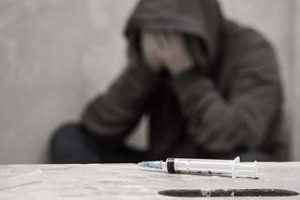 If you are struggling with addiction, alcoholism, or a substance abuse disorder, your life can feel out of control and unmanageable. Addiction can cause damage to your physical health, relationships, and finances. During addiction, it’s common to neglect your responsibilities and obligations in order to abuse drugs and alcohol. A substance abuse disorder is a chronic disease that requires treatment. Unfortunately, the vast majority of people who have a substance abuse disorder don’t receive help.
If you are struggling with addiction, alcoholism, or a substance abuse disorder, your life can feel out of control and unmanageable. Addiction can cause damage to your physical health, relationships, and finances. During addiction, it’s common to neglect your responsibilities and obligations in order to abuse drugs and alcohol. A substance abuse disorder is a chronic disease that requires treatment. Unfortunately, the vast majority of people who have a substance abuse disorder don’t receive help.
In fact, although 20.7 million Americans needed substance abuse disorder treatment in 2017, only 2.5 million actually followed through with treatment. Even though addiction doesn’t have a cure, treatment provides you with the tools, support, and guidance you need to achieve life-long recovery.
What is a Substance Abuse Disorder?
Addiction is a mental health disease that causes you to compulsively and obsessively abuse drugs and alcohol despite having a desire to stop or dealing with negative consequences as a result of your addiction. A substance abuse disorder can involve both prescription and illicit drugs, including:
- Heroin, OxyContin, and Vicodin
- Xanax, Ativan, and Klonopin
- Cocaine and crack cocaine
- Methamphetamine
- Adderall and Ritalin
Even if you take prescription medications like Vicodin exactly as prescribed, you can develop an addiction. A substance abuse disorder can cause both physical and psychological dependency. A physical addiction means that your body depends on your substance of choice in order to function and you can experience withdrawal symptoms if you immediately stop using.
The stages of addiction can also progress rapidly, meaning there is no set time period for how long after your first use it takes to develop a dependency. When you have a substance abuse disorder, you regularly have to increase your drug use in order to experience the same pleasurable effects. Eventually, you may have to use your substance of choice solely to avoid withdrawal symptoms.
While most withdrawal symptoms are uncomfortable but not fatal, certain substances can cause potentially life-threatening detox symptoms. Since withdrawal symptoms can begin within hours of your last use, arranging treatment before you quit using is the best way to prevent serious withdrawal symptoms.
Common withdrawal symptoms can include:
- Seizures and disorientation
- Anxiety, depression, and mood changes
- Insomnia, sleep problems, and exhaustion
- Aches and pains
- Muscle cramps and stomach pain
Treatment Options
Substance abuse disorder treatment can take place in an inpatient or outpatient setting. Inpatient programs offer you the absolute highest level of care and 24/7 access to medical professionals. Most inpatient programs also four weeks, although many treatment centers also offer long-term residential programs. Long-term programs can offer additional supports such as sober living options and job training programs.
Both inpatient and outpatient programs can offer medically supervised detox services, although inpatient detox is the best option if you’re at risk for experiencing serious withdrawal symptoms. During detox, staff administers medications in a controlled environment that can help minimize your symptoms and reduce your discomfort.
Once you complete a detox program, you may still experience mild withdrawal symptoms for some time. This is why treatment is so important. You can continue to experience cravings long after your last use. Learning how to cope with things like triggers, stress, and conflict is essential to managing your sobriety. Another reason why treatment is important is because it takes time for your body and your mind to fully recover from the damage addiction causes.
Finding the Best Treatment Program Today
When you are battling a substance abuse disorder, you can feel defeated, isolated, and hopeless. It can be hard to admit that you have a substance abuse disorder. Reaching out for help is an important first step in your recovery. If you or a loved one is battling a substance abuse disorder, call us today at 1.844.675.1628 to learn more about how our programs can help you find recovery.
